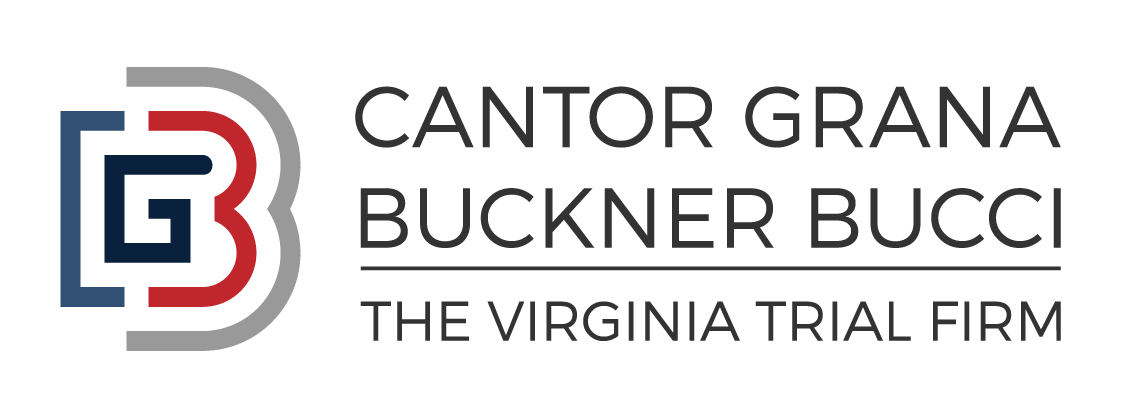Brain Injuries From Car Accidents
Unfortunately, brain injuries resulting from car accidents are common and can be significantly life-altering. According to the Centers for Disease Control and Prevention (CDC), car accidents are responsible for many traumatic brain injuries in the United States, accounting for nearly 286,000, or 14% of such cases annually. These numbers underline the critical importance of understanding the potential risks and implications associated with brain injuries resulting from car accidents.
If you have experienced a traumatic brain injury due to the negligent actions of another party, do not hesitate to contact a car accident attorney at Cantor Grana Buckner Bucci for a free consultation. Our experienced legal team can diligently gather all necessary evidence to help ensure that you receive just compensation for your injury and associated losses.
What is Traumatic Brain Injury?
Traumatic Brain Injury (TBI) is an external blow, physical assault, or violent jolt which causes damage to the brain. TBIs can range from mild (commonly referred to as a concussion) to severe, potentially leading to permanent brain damage or even death. Symptoms can be physical, such as headaches, dizziness, or loss of coordination, as well as cognitive and emotional, including memory problems, mood swings, and difficulty concentrating. It is important to note that symptoms may not present immediately following an incident and may develop over days or weeks. If you suspect a TBI after a car accident, seek medical attention immediately.
Mild Traumatic Brain Injury VS Severe Traumatic Brain Injury
The severity of a brain injury is determined primarily by the extent and duration of symptoms. Mild TBIs may result in altered consciousness for brief periods but most can be managed with rest and medication. For some, recovery from a mild brain injury is more complex, and requires a skilled treatment team. Severe TBIs can lead to prolonged unconsciousness and require extensive medical treatment or physical therapy. Depending on the nature of the injury, some patients may require long-term care or a lifelong need for assistance to complete daily activities due to their severe injury.
Types of Brain Injuries
Brain injuries can be classified into different types based on the nature and severity of the injury. Here are the main types:
Concussion:
Concussions are the most common type of TBI, often resulting from a direct blow to the head. Symptoms typically include headaches and temporary loss of brain function, which can affect memory, judgment, reflexes, speech, balance, and coordination.
Contusion:
This refers to a bruise or bleeding on the brain, usually caused by direct impact to the head.
Coup Contrecoup Brain Injury:
This type of injury occurs when, because of movement of the brain, there is damage to 2 sides of the brain (the side of the trauma and the opposite side of the brain), resulting in bruises on both sides.
Diffuse Axonal Injury:
This form of TBI is caused by strong rotation or shaking of the head, leading to the tearing of brain tissues, blood vessels and long conducting nerve fibers.
Penetrating Injury:
This happens when a foreign object enters the brain, causing damage to specific brain parts. This can be a life-threatening brain injury.
Second Impact Syndrome (SIS):
This occurs when a person sustains a second concussion before the symptoms of the first have fully subsided, leading to rapid and severe brain swelling.
Remember, any suspected brain injury should be treated as a medical emergency and requires immediate attention.
What is primary and secondary brain injury?
Primary brain injury is the initial damage caused by the direct impact of force or trauma to the head. Secondary brain injury occurs when processes immediately following a traumatic event, such as increased intracranial pressure and impaired cerebral hemorrhage, lead to further damage. This can be more difficult to treat since it involves multiple factors that may require medical intervention or even surgery.
What Causes a Head Injury?
Head injuries can be caused by a variety of factors, depending on the type. Most commonly, head trauma is caused by falls, motor vehicle collisions, sporting accidents, or assaults. It’s important to recognize that even seemingly innocuous activities, such as riding a bike or walking along a sidewalk, can result in head injuries if proper safety precautions are not taken.
What Are The Symptoms of a Brain Injury After a Car Accident?
The symptoms of a brain injury after a car accident may vary widely depending on the severity of the injury and the specific area of the brain affected. Symptoms can present immediately after the accident or may take hours, days, or even weeks to appear. Here are some potential symptoms to be aware of:
Physical Symptoms:
- Headaches: Persistent or worsening headaches can indicate a TBI.
- Nausea or vomiting: These symptoms may suggest a more serious brain injury.
- Fatigue or drowsiness: Excessive tiredness or difficulty waking up can be a TBI sign.
- Dizziness or loss of balance: Difficulty maintaining coordination and balance can be a result of brain injury.
- Seizures or convulsions: These are serious symptoms and may indicate severe brain injury.
- Dilated pupils: This can be a sign of increased pressure in the brain.
- Sensory symptoms: This can include blurred vision, ringing in the ears, a bad taste in the mouth, changes in the ability to smell, or sensitivity to light or sound.
- Difficulty sleeping: Trouble falling asleep or waking up frequently throughout the night can be a symptom of TBI.
- Loss of consciousness: Brief or prolonged unconsciousness can be a sign of a severe TBI.
- Clear fluids draining from the nose or ears: This can indicate a tear in the membranes surrounding the brain.
- Physical paralysis or weakness: This can indicate damage to the part of the brain that controls muscular function.
- Difficulty with coordination: Struggling with tasks that require fine motor skills, such as buttoning a shirt, can be a symptom of brain injury.
Cognitive Symptoms:
- Memory loss or difficulty recalling information: This can be a sign of a more serious brain injury.
- Difficulty concentrating: An inability to focus or sustain attention can be indicative of a TBI.
- Slowed thinking and processing speed: The person may appear confused when responding to questions or taking longer than usual to complete tasks.
- Disorientation and confusion: Difficulty orienting oneself in time or space, such as not knowing the day of the week, can indicate a brain injury.
Emotional Symptoms:
- Mood swings or fluctuations in emotion: This can include sudden changes from emotions like anger to sadness.
- Anxiety or depression: These symptoms can appear shortly after an accident and may persist for some time.
- Irritability or aggression: These behaviors may be out of character and can indicate a TBI.
- Apathy or disinterest in activities they previously enjoyed: This can be indicative of a TBI.
Sensory Symptoms:
- Visual disturbances: This can include blurred vision, double vision, or sensitivity to light.
- Taste and smell changes: A person may experience a persistent bad taste in the mouth or an inability to smell certain things.
- Hearing alterations: This can range from muffled hearing to ringing in the ears.
Emotional Symptoms:
These can manifest as mood swings, depression, anxiety, irritability, and changes in personality.
Severe Symptoms:
If you experience loss of consciousness, seizures or convulsions, slurred speech, or numbness or weakness in the limbs, these are severe symptoms and require immediate medical attention.
Remember, if you experience any of these symptoms following a car accident, it’s crucial to seek immediate medical attention. Even if symptoms seem minor or moderate, they may signify a more serious brain injury that requires treatment.
Can the brain heal after being injured?
The brain’s ability to recover after an injury is a complex and individualized process. It largely depends on the severity and location of the injury, the person’s age, and the speed of medical intervention. The brain’s neuroplasticity allows it to reorganize and form new connections between its cells. While not all functions may be fully restored after a traumatic brain injury, many people can make significant recoveries with rehabilitation and therapeutic interventions. However, it’s crucial to note that the recovery process can be long, often spanning several months or years, and requires ongoing support and patience.
Understanding the Impact of Traumatic Brain Injuries
Traumatic brain injuries caused by accidents, falls, or other incidents can have serious long-term consequences, altering the lives of both the individuals affected and their families. These injuries can lead to physical, cognitive, and emotional changes that require extensive medical treatment and rehabilitation. Challenges could involve difficulties with memory, attention, and decision-making, as well as changes in sensory perception and emotional regulation. Therefore, it’s paramount to understand the risks associated with these injuries and take necessary precautions.
If a traumatic brain injury is suspected, immediate medical attention is crucial to prevent further complications and to begin the healing and recovery process at the earliest. Remember, time and prompt treatment are key in dealing with traumatic brain injuries.
What Should You Do If You Suspect a Head Injury?
If you suspect you’ve suffered a head injury, it’s crucial to protect not only your health but also your legal rights. Here are the steps you should follow:
Seek Immediate Medical Attention – Your health comes first. No matter how minor you think the injury may be, get checked by a healthcare professional. Medical records from these visits are vital pieces of evidence if you decide to file a personal injury claim.
Document Your Symptoms – Keep a diary of your physical, cognitive, and emotional symptoms, as well as any changes in sleep patterns or behavior. This can be helpful for your medical providers and can serve as evidence of the effects of the injury.
Preserve Evidence – If possible, preserve any physical evidence from the incident that caused your injury. This might include photographs of the location where the incident occurred or any damaged belongings.
Witness Statements – If there were any witnesses, get their contact information. Their statements could be valuable in establishing the circumstances of the accident.
Report the Incident – If the injury occurred due to someone else’s negligence or an accident at work, report it to the relevant authority or your employer as soon as possible. Obtain a copy of the report if one is made.
Consult with a Lawyer – A lawyer experienced in personal injury law can guide you through the process, ensuring you take the necessary steps to protect your rights. They can also represent you if you decide to make a claim.
Can You Sue For a Car Accident Brain Injury?
Yes, you can sue for a car accident brain injury if another party’s negligence caused the accident. If you can prove that the other party was at fault, you might be eligible to receive compensation for medical bills, lost wages, and non-economic damages such as pain and suffering or emotional distress. It’s crucial to consult with a personal injury attorney who can guide you through the process and help you understand your rights and potential compensation. Laws regarding personal injury claims vary from state to state, so understanding your local laws is essential. Remember that the process can be complex and time-consuming, so it’s important to start as soon as possible after the accident.
Why Do You Need a Brain Injury Attorney?
Securing the services of a dedicated brain injury attorney, like the ones at Cantor Grana Buckner Bucci, can greatly enhance your chances of securing just compensation for your injuries. Our team has extensive experience in dealing with traumatic brain injury cases, and we are well-versed in the complexities of personal injury law. We understand the medical intricacies of brain injuries and the long-term impact they can have on your life. This expertise allows us to build a compelling case on your behalf, accurately estimating the financial implications of your injury to ensure you receive adequate compensation. Our attorneys are relentless advocates who will fight tirelessly to uphold your rights and navigate the legal process on your behalf. If you suspect you’ve suffered a traumatic brain injury, don’t wait – contact Cantor Grana Buckner Bucci today. Let us put our experience and knowledge to work for you.










